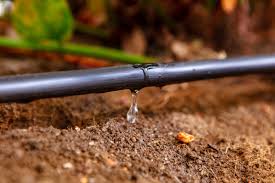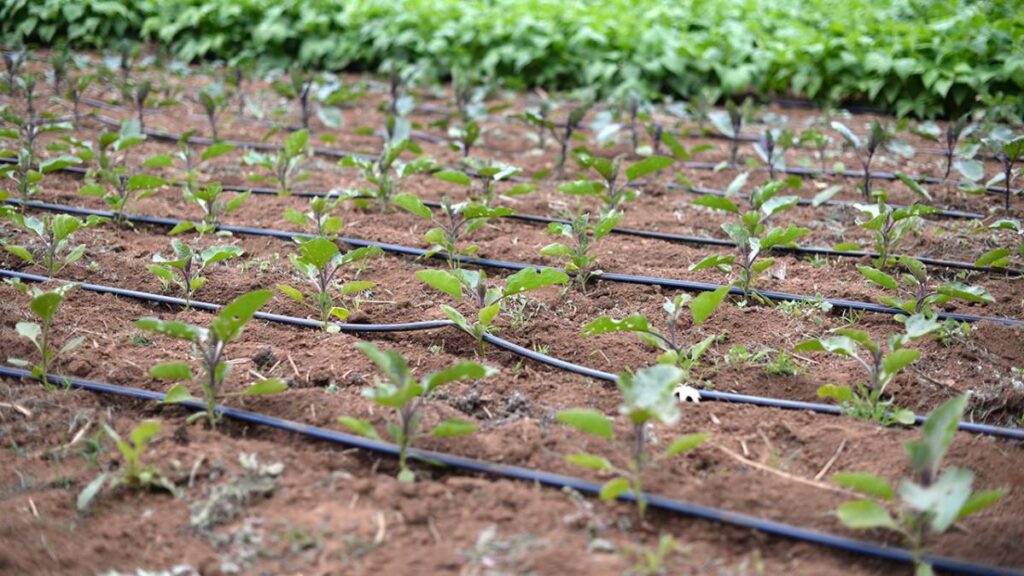
The drip irrigation industry has revolutionized agricultural practices worldwide by significantly enhancing water efficiency and crop productivity. Unlike traditional irrigation methods, which can lead to water wastage and uneven distribution, drip systems deliver water directly to the plant roots in a controlled, precise manner. This targeted approach not only conserves water but also reduces nutrient leaching and weed growth, thereby optimizing resource utilization. The industry continues to innovate with advanced technologies such as soil moisture sensors, automated controllers, and fertigation systems, further improving efficiency and sustainability in farming. As global water scarcity intensifies, drip irrigation stands out as a crucial tool in ensuring food security and sustainable agricultural development for future generations.

The drip irrigation industry has revolutionized agricultural practices worldwide, offering a sustainable solution to water management and enhancing crop productivity. Drip irrigation systems deliver water directly to the root zone of plants, minimizing waste and maximizing efficiency. Compared to traditional irrigation methods, which often lead to water loss through evaporation and runoff, drip systems achieve significant water savings of up to 50% or more. This efficiency not only conserves water resources but also reduces the environmental impact by minimizing soil erosion and nutrient leaching. Farmers employing drip irrigation report higher yields and improved crop quality due to the precise delivery of water and nutrients tailored to the specific needs of plants.
Technological advancements play a crucial role in the drip irrigation industry’s evolution. Modern drip systems integrate automated controllers, soil moisture sensors, and fertigation capabilities, allowing farmers to monitor and adjust irrigation schedules based on real-time data. These innovations enhance operational efficiency, reduce labor costs, and optimize resource utilization. Although initial installation costs may be higher compared to conventional irrigation methods, the long-term benefits in water savings, improved yields, and reduced input costs make drip irrigation systems a cost-effective investment for farmers.
The global adoption of drip irrigation is driven by its ability to mitigate the challenges posed by climate change, population growth, and water scarcity. In regions facing water shortages or unpredictable rainfall patterns, drip systems provide a reliable means of maintaining crop production while conserving precious water resources. Government incentives and supportive policies further encourage the adoption of drip irrigation, promoting sustainable agriculture and food security goals. As the demand for water-efficient technologies grows, the drip irrigation industry continues to innovate, exploring new materials, sensor technologies, and precision farming techniques to further enhance system efficiency and accessibility.
Looking forward, the future of the drip irrigation industry appears promising, with ongoing research and development focused on improving system reliability, affordability, and adaptability to diverse agricultural environments. Innovations in drip irrigation technology hold the potential to expand its application across various crops and regions, empowering farmers to sustainably increase food production while safeguarding natural ecosystems. By leveraging the efficiency and precision of drip irrigation systems, agriculture can mitigate its environmental footprint and contribute to global efforts towards sustainable development goals.
In conclusion, the drip irrigation industry stands at the forefront of sustainable agriculture, offering a proven solution to optimize water use, enhance crop yields, and promote environmental stewardship. As the global population continues to grow, and water resources become increasingly scarce, drip irrigation systems play a pivotal role in ensuring food security and economic stability for farming communities worldwide. By embracing technological innovation and best practices in water management, the drip irrigation industry exemplifies how modern agriculture can thrive while preserving natural resources for future generations










